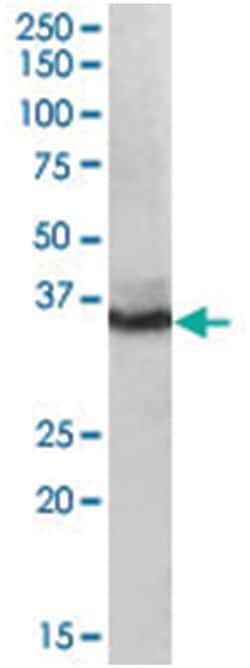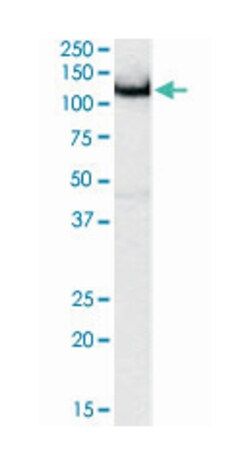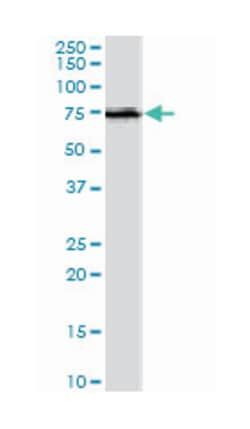AKR1C4, Goat, Polyclonal Antibody, Abnova™
Manufacturer: Abnova Corporation
Select a Size
| Pack Size | SKU | Availability | Price |
|---|---|---|---|
| Each of 1 | 89-132-884-Each-of-1 | In Stock | ₹ 70,399.00 |
89-132-884 - Each of 1
In Stock
Quantity
1
Base Price: ₹ 70,399.00
GST (18%): ₹ 12,671.82
Total Price: ₹ 83,070.82
Antigen
AKR1C4
Classification
Polyclonal
Conjugate
Unconjugated
Dilution
ELISA (1:4000) Western blot (0.1-0.3 ug/mL) Immunohistochemistry (Formalin/PFA-fixed paraffin-embedded sections) (2-4 ug/mL) The optimal working dilution should be determined by the end user.
Gene
AKR1C4
Gene Alias
3-alpha-HSD/C11/CDR/CHDR/DD4/HAKRA/MGC22581
Host Species
Goat
Purification Method
Antigen affinity purification
Regulatory Status
RUO
Gene ID (Entrez)
1109
Target Species
Human
Form
Liquid
Applications
ELISA, Immunohistochemistry (PFA fixed), Western Blot
Concentration
0.5 mg/mL
Description
Goat polyclonal antibody raised against synthetic peptide of AKR1C4.
Formulation
In Tris saline, pH 7.3 (0.5% BSA, 0.02% sodium azide)
Gene Accession No.
NP_001809.2
Gene Symbols
AKR1C4
Immunogen
A synthetic peptide corresponding to human AKR1C4.
Quantity
100 μg
Primary or Secondary
Primary
Test Specificity
This antibody may cross-react with AKR1C1.
Content And Storage
Store at -20°C.Aliquot to avoid repeated freezing and thawing.
Description
- Description This gene encodes a member of the aldo/keto reductase superfamily, which consists of more than 40 known enzymes and proteins
- These enzymes catalyze the conversion of aldehydes and ketones to their corresponding alcohols by utilizing NADH and/or NADPH as cofactors
- The enzymes display overlapping but distinct substrate specificity
- This enzyme catalyzes the bioreduction of chlordecone, a toxic organochlorine pesticide, to chlordecone alcohol in liver
- This gene shares high sequence identity with three other gene members and is clustered with those three genes at chromosome 10p15-p14
- [provided by RefSeq Sequence: DPKYQRVELNDGH-C



